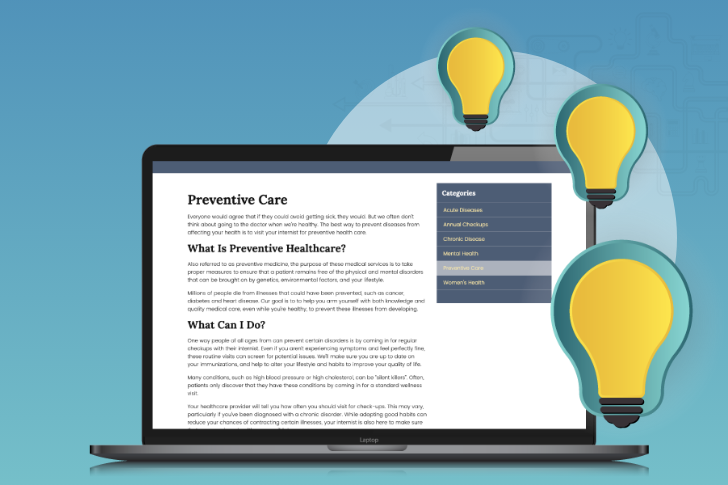By: Melody Gandy-Bohr
Search engine optimization is constantly evolving, making optimizing a website a challenge even for SEO experts. These experts agree that a strong SEO strategy is more important than following the latest trend. Meta tags are the foundation of on-page SEO, title tags being the most important. Title tags have been proven to increase website traffic and engagement, and here’s what you need to know about them.
What Is a Title Tag?
Meta tags are HTML elements in your website’s source code. They provide search engines and online users with information about your site. This helps search engines like Google determine how to rank your website and tells users if your site is relevant to their search query. Title tags show up in search engines as the large line of blue text in each search result. They are a major deciding factor in a user clicking through to your website.
Effect on Search Engine Results
Google pulls title tags right from your website in search results. This means that if you don’t have title tags set up, your website may not show up in Google. In part, you have title tags to thank for your site traffic. However, title tags only benefit your website if they’re relevant and unique to each page. A page about wisdom tooth extraction should have a tag that includes “wisdom tooth.” Generic tags are often overlooked by users or don’t show up in search results at all.
Better Relevancy
Title tags are used in two other key places: at the top of web browsers and as the title of shared posts on social media. When someone shares your content on social media, whether it’s a website page or a blog post, your title tag will populate as the title of the content. Generic title tags negatively affect your content’s relevancy and user engagement. Tags that are relevant and informative are more likely to be clicked on and even shared again by new users on social media.
Tips for Writing Good Title Tags
A good title tag includes enough information to accurately describe your website’s page. Place keywords near the beginning of the tag and end with your practice’s name. Keep title tags short, about 60 characters long, including spaces. Here’s an example for an Invisalign page: Certified Invisalign Provider – Chicago | OFC Dental. The tag contains the keyword “Invisalign,” which is relevant to the page as well as the name and location of the dental practice. It lets Google and users know exactly what the page is about.
Title tags are an important part of on-page SEO, but there are many other elements that go into optimizing a website. If you’re ready to boost your website’s online visibility, contact Officite to learn more about how our SEO services can help your practice.



